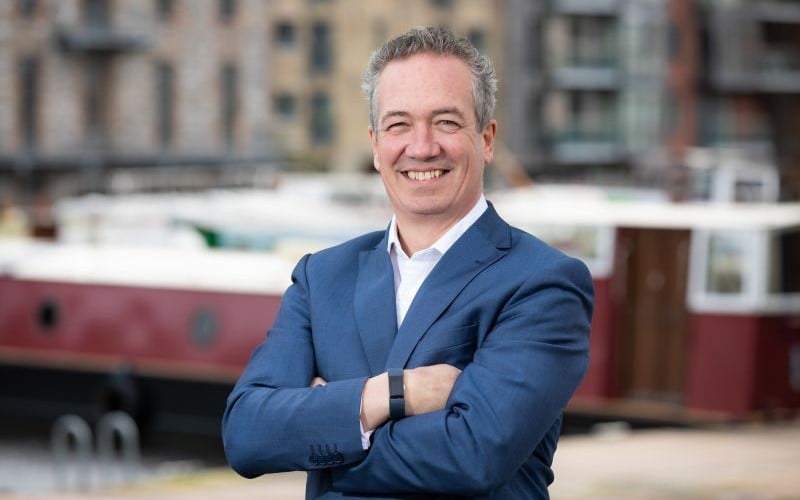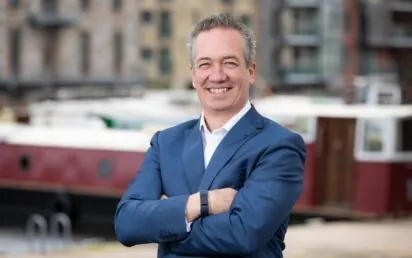Being first to market with a technology can be a massive advantage in business – but it comes with challenges.
Philippe Brodeur knows that only too well after his startup almost went bust after years of trying to help people to understand its tech.
Brodeur enjoyed a lengthy career in producing and planning for major news networks like the BBC. He then founded AI video management platform Overcast HQ in Dublin in 2015 to tackle the issues he faced.
“When I started my career, my team and I could’ve done a lot more if we weren’t so restricted by the technology available,” he tells TechBlast. “We wasted a lot of time with tasks that are automated today.
“Back then, it was normal to send five people – a producer, reporter, camera person, sound technician and lighting person – just to get a 30-second clip from a politician. Today, it can be done on an iPhone.
“YouTube is responsible for starting the video-to-cloud revolution 20 years ago. And while it has made it easy for consumers to easily view and share videos, it hasn’t done much for the broadcast or video streaming world. In fact, Overcast HQ was founded because I was working on a streaming video project and it wasn’t possible to upload content directly to the cloud.
“It turned out to be cheaper and faster to fly from London to Hollywood and back to pick up hard drives loaded with content than it was to upload a video to the cloud! That isn’t an exaggeration – it’s how producers operated.”
The platform is an AI-driven asset management solution specifically designed for video. Upon launching, Brodeur realised that the problem wasn’t restricted to broadcasters and studios.
“Global brands like Diageo, Unilever and P&G create hundreds – even thousands – of versions of every ad they make; they have to be in different formats, languages, and meet different regulatory and compliance guidelines for different countries,” he explains.
“On top of that, they create smaller clips that get distributed on social platforms and websites. Now with generative AI, content departments and marketers are being asked to create even more content with less resources.
“There is also a huge movement to reuse content. Targets are being set and content creators are having to search the archives. [Using our platform], rather than having to scroll through thousands of hours of B-roll, creatives – and their colleagues – can use an AI-powered search for the content they are looking for and go right to the timecode of what they want.
“We also discovered how many brands were reshooting their content. If the video from an entire shoot goes missing, most brands will just reshoot the entire project, costing thousands and wasting so much time and resource.”
He continues: “We manage other formats like images and documents, but videos are big, complex files that have traditionally not been part of an enterprise’s digital transformation strategy. Overcast HQ helps both brands and producers keep the thousands of videos they have to manage in one single source of truth, accessed globally and ‘searchable’ thanks to the AI tools we have been using for the past seven years.
“Think of it as a YouTube, but personalised for your business – providing real business insights and results in a short period of time. Reshooting content becomes part of the past, compliance becomes easier, and corporates save literally millions just on better, easier video storage.”
Brodeur says “a big learning has been that innovation sucks if you’re too early”.
“When we first launched, we were too early. People didn’t get it. And when the COVID-19 pandemic hit, we almost went bust,” he confides.
“But it also helped us re-focus on our target market. We went after the wrong market – SMEs – when we first launched, thinking it would be a quicker route to profit, but our product is fundamentally an enterprise solution. We changed our target and price structure and have only known growth ever since.”
He advises that building a team has to be a “very careful and robust process”.
“A lot of tech firms are waking up to the realisation that it’s unsustainable – not to mention, dangerous – to hire a lot of staff quickly,” he says.
“Being choosy is not only a safer, more sustainable way of growing; it’s better business sense.”
From Series A to acquisition: Enjoy the journey… & plan for the final destination


